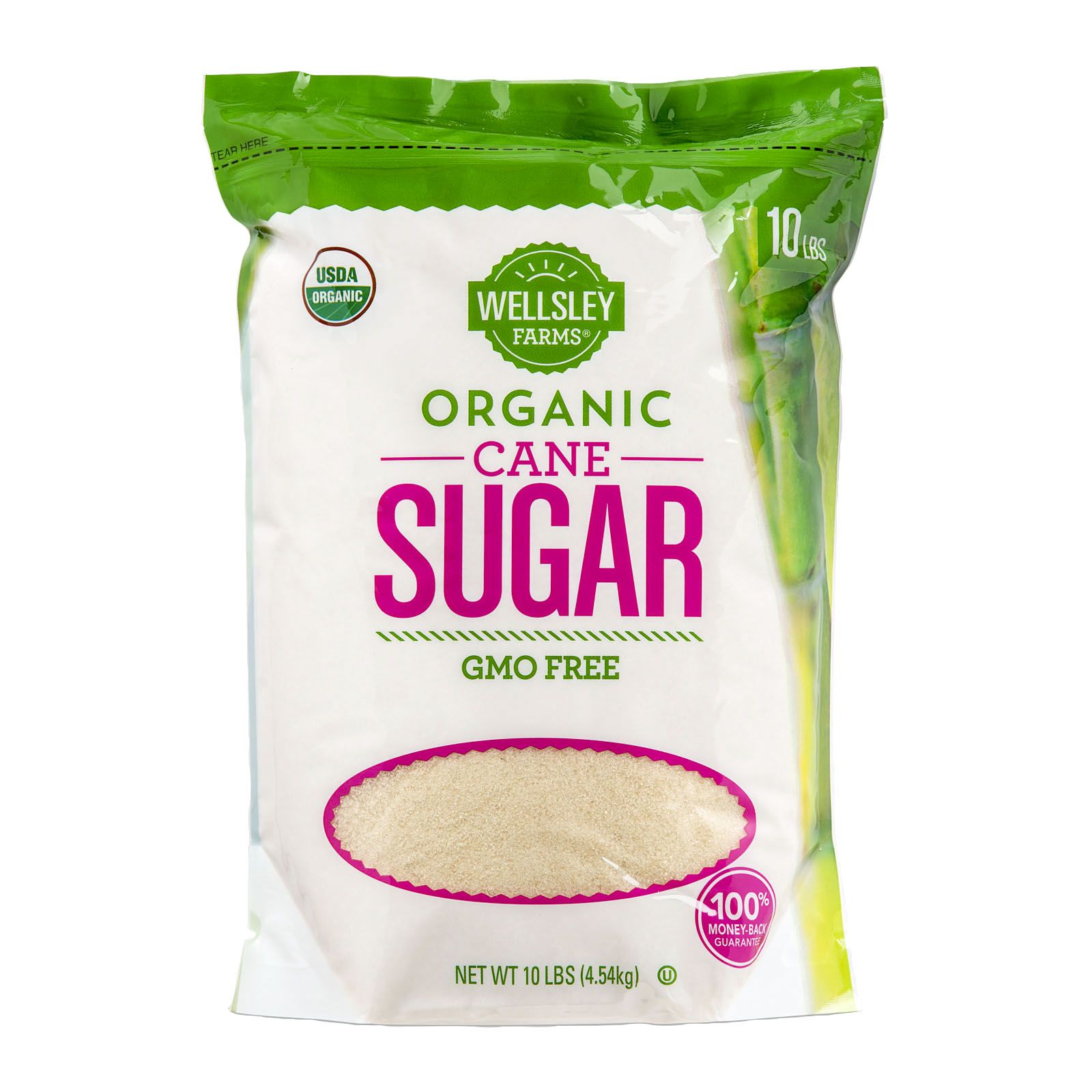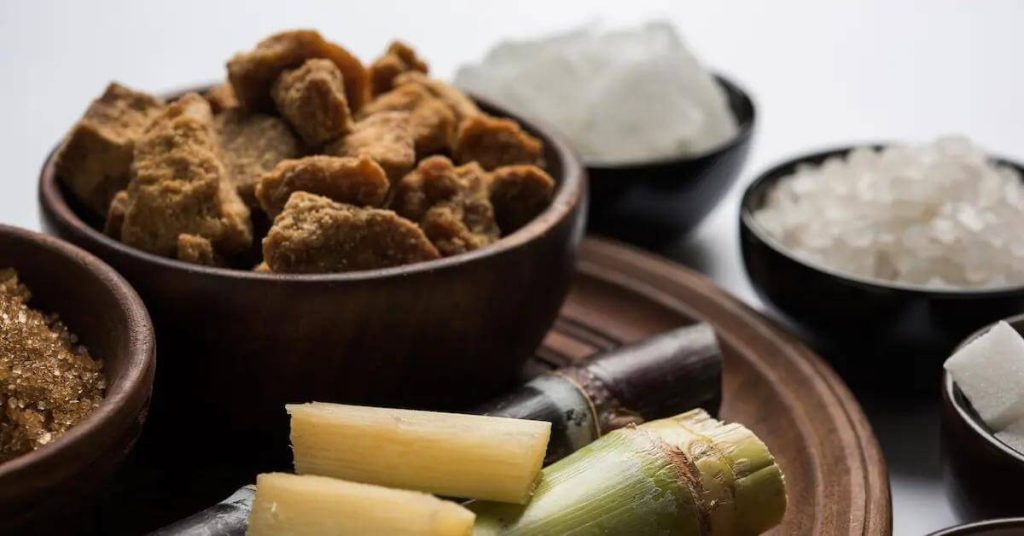A Thorough Review of the Health And Wellness and Economic Effects of Walking Stick Sugar Handling on Regional Areas
Walking stick sugar handling plays a pivotal role fit the financial landscape of local communities, providing employment possibility and promoting secondary sectors. Nevertheless, the health ramifications associated with high sugar usage can not be overlooked, as they contribute to rising rates of obesity and diabetes mellitus. This nuanced dynamic welcomes a crucial evaluation of just how areas can maximize financial gains while resolving the pushing wellness obstacles they face. The exploration of educational initiatives and lasting techniques may simply hold the trick to integrating these contrasting passions. What approaches might areas apply to accomplish this balance?
Economic Benefits of Cane Sugar Processing
Walking cane sugar processing supplies considerable financial benefits that extend past the prompt farming sector. The farming and processing of sugarcane develop many task possibilities, from farming to production and distribution. This employment generation not just supports local economic situations however additionally cultivates neighborhood development by supplying stable earnings sources for households.
Furthermore, the sugar sector boosts secondary businesses, consisting of transport, devices supply, and packaging services (Cane Sugar Processing). As these markets grow, they add to a more durable financial structure, improving overall neighborhood strength. The export possibility of processed walking cane sugar even more intensifies economic benefits, placing regions as competitive players in international markets
Financial investment in modern handling facilities can result in raised efficiency and efficiency, therefore lowering waste and optimizing resource usage. This shift not just profits the regional economic situation but also sustains sustainability initiatives by lessening ecological impacts.
In addition, the income generated from cane sugar handling can be reinvested in local facilities, education, and health care, promoting holistic community growth. Generally, the financial advantages of walking cane sugar handling are multifaceted, supplying a foundation for enduring prosperity in farming regions.
Health And Wellness Threats Linked With Sugar Usage
Too much sugar consumption poses significant health risks that require significant interest. High intake of sugarcoated, specifically from refined foods and beverages, has been connected to numerous health and wellness complications. Among the most important worries is excessive weight, as sugary diet plans add to an enhanced caloric consumption without providing vital nutrients. This extra can cause metabolic problems, including kind 2 diabetes, which has come to be progressively prevalent in both youngsters and grownups - Cane Sugar Processing.
Furthermore, high sugar usage is connected with cardio disease. Raised blood sugar level degrees can lead to insulin resistance, a forerunner to various heart-related concerns. In addition, sugar can have detrimental impacts on oral health and wellness, causing cavities and gum tissue condition, as bacteria in the mouth thrive on sugar, creating acids that deteriorate tooth enamel.
Furthermore, arising research study recommends a prospective link between high sugar usage and psychological wellness conditions, such as depression and anxiety. As neighborhoods grapple with these wellness dangers, it comes to be important to advertise awareness and encourage healthier dietary choices. Attending to sugar consumption is essential not only for private health and wellness but likewise for the general health of regional areas, highlighting the need for detailed public health and wellness techniques.
Ecological Influences of Sugar Production
Frequently forgotten in conversations about sugar's implications is the significant ecological influence of sugar manufacturing. The farming of sugarcane commonly demands substantial land usage, causing deforestation, loss of biodiversity, and interruption of regional environments. The conversion of forests and wetlands into sugar plantations can result in environment devastation, threatening various species and altering eco-friendly balance.
Moreover, sugar manufacturing is resource-intensive, consuming considerable quantities of water for irrigation. This can lead to depletion of neighborhood water sources, adversely affecting both farming methods and community access to clean water. Additionally, making use of chemical fertilizers and pesticides in sugarcane farming can add to soil degradation and water contamination, as overflow from these chemicals enters nearby rivers and lakes, influencing marine life and human wellness.
The ecological footprint encompasses the processing stage, where energy intake and waste generation further exacerbate eco-friendly issues. Air air pollution from shedding sugarcane areas, in addition to greenhouse gas emissions, add to environment change. Thus, the environmental ramifications of sugar production warrant significant factor to consider, prompting stakeholders to take on even more sustainable methods to minimize these damaging impacts on local ecosystems and neighborhoods.
Task Creation and Neighborhood Growth
The environmental difficulties presented by sugar production are usually counterbalanced by its capacity for economic advantages, especially in task development and area growth. The walking cane sugar market works as a substantial resource of employment in numerous rural areas, offering jobs throughout numerous ability levels, from agricultural labor to handling and circulation roles. This employment not only supports individual family members but also adds to the overall economic vitality of local areas.
Additionally, the facility of sugar handling centers boosts supplementary organizations, such as transport solutions, tools supply, and maintenance suppliers. As these companies thrive, they create extra tasks and reinforce regional economies. The income produced from try this web-site the sugar market also leads to increased tax earnings, which can be reinvested right into community services such as facilities, health care, and education advancement.
Furthermore, the sugar industry usually participates in community growth initiatives, such as sustaining local schools and health and wellness programs, thereby boosting the lifestyle for citizens. By fostering solid community ties and promoting economic growth, the walking cane sugar processing sector plays a vital function in uplifting neighborhood populations, making it a crucial part of sustainable growth strategies in sugar-producing regions.
Balancing Wellness and Economic Growth
In browsing the complexities of walking cane sugar processing, an important obstacle depends on stabilizing health considerations with economic development. The sugar industry dramatically adds to local economies by generating tasks, boosting relevant fields, and enhancing tax obligation revenues. Nevertheless, the wellness implications associated with extreme sugar consumption can cause persistent conditions such as obesity, diabetes, and cardiovascular problems, which can problem public wellness systems and lessen workforce productivity.

Moreover, governing structures can play a pivotal function in assisting market methods in the direction of even more health-conscious and lasting approaches. By fostering collaboration between federal government bodies, health organizations, and the sugar industry, communities can navigate the dichotomy of health and check out here wellness and economic growth, guaranteeing that the benefits of walking stick sugar processing are equitably shared while prioritizing public health.
Conclusion
In verdict, the processing of cane sugar presents both significant economic advantages and noteworthy health risks for local communities. While it fosters job creation and boosts local development, the connected health and wellness issues, particularly pertaining to obesity and diabetes, require a mindful balancing act. By advertising accountable consumption and investing in area education and learning and lasting methods, it is possible to make best use of financial advantages while decreasing negative health impacts, thereby ensuring a much healthier future for regional populations.
In link addition, sugar can have detrimental impacts on oral wellness, resulting in tooth cavities and gum disease, as microorganisms in the mouth prosper on sugar, producing acids that deteriorate tooth enamel.
Addressing sugar consumption is essential not just for private health but additionally for the overall health of local areas, highlighting the need for detailed public health methods.
Frequently forgotten in discussions regarding sugar's effects is the considerable ecological influence of sugar production. The wellness implications connected with too much sugar consumption can lead to persistent conditions such as weight problems, diabetic issues, and cardio issues, which can concern public wellness systems and diminish labor force productivity.

Comments on “The Trip of Cane Sugar Processing: From Harvest to Crystals”